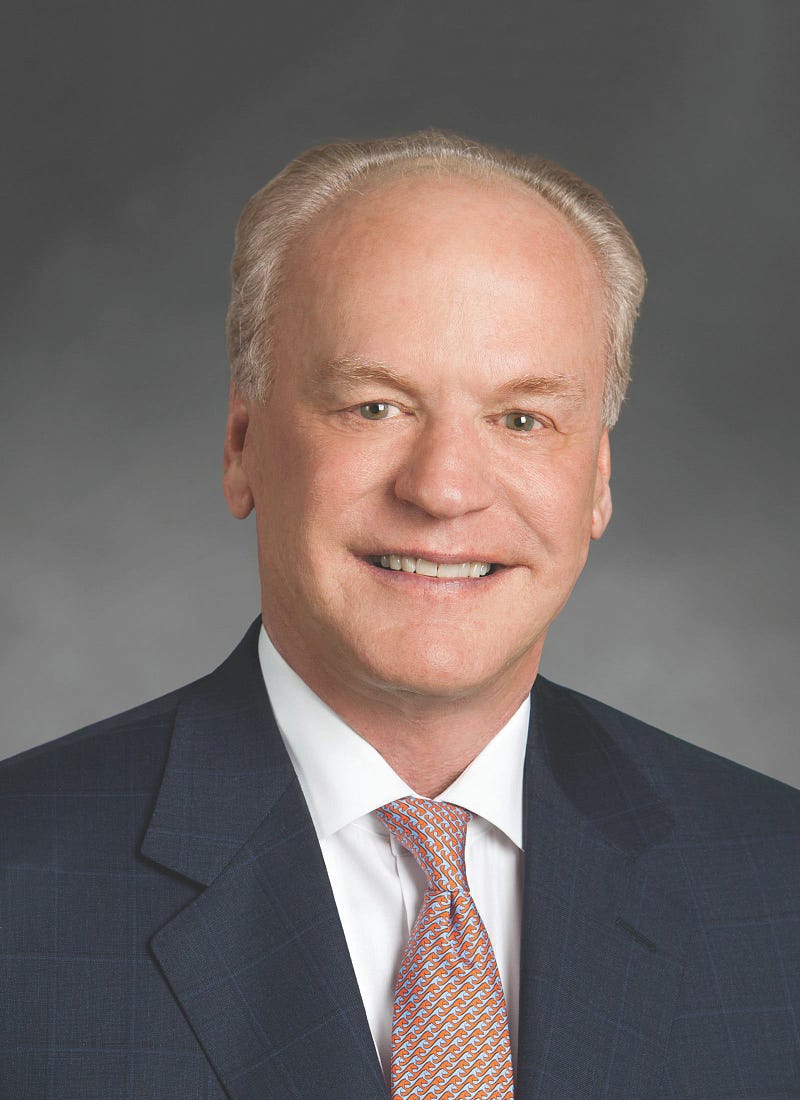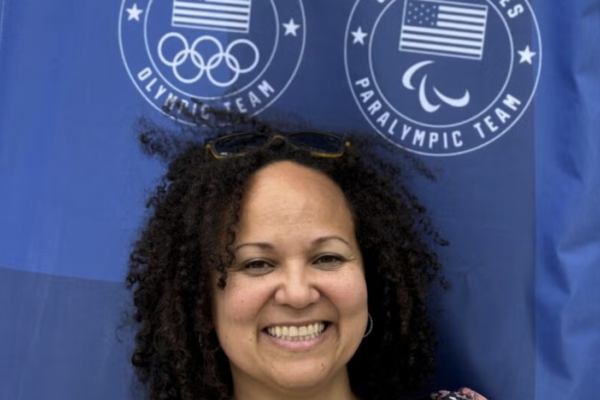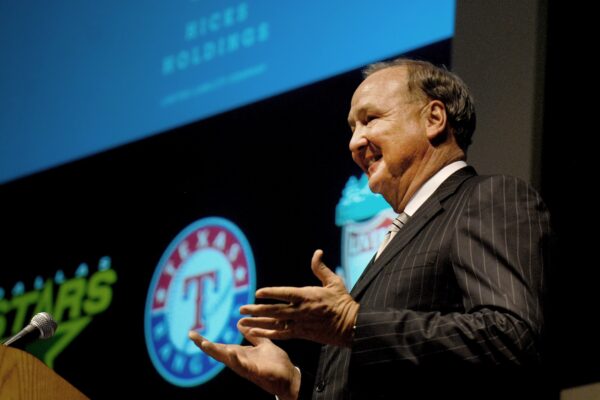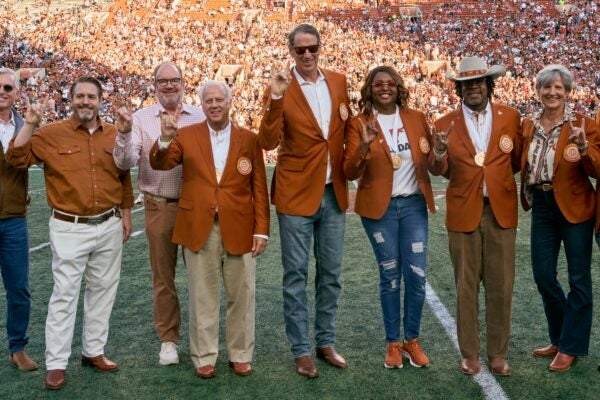Investing in Students
UT System Regent and McCombs Hall of Famer Steve Hicks sees radio’s future—and social work’s power

By Steve Brooks
Steve Hicks, B.A. ’72, made his reputation in radio stations and business startups. But the COVID-19 pandemic has turned a spotlight on another of his investments: University of Texas students. As a member of the UT System Board of Regents, he has worked to expand mental health services to help students deal with the stresses of college life.
He sees his 2017 gift of $25 million to the UT School of Social Work, which bears his name, as an investment. It included $15 million for scholarships and $5 million for addiction and recovery education, a cause with personal resonance.
The gift also was about giving back to the institution that helped launch his career, Hicks says. At age 29, armed with a bachelor’s degree in government and business, he bought his first radio station. In the 1990s, after creating the industry’s first local marketing agreement (LMA) — which allowed one station to operate another — he amassed an empire of 350 stations.
In 2000, he left radio for private equity after seeing his own children get their music from other sources. Now executive chairman of Austin-based Capstar Partners, he oversees investments as diverse as luxury travel agency Andrew Harper, jewelry design company Kendra Scott (she’s also a UT professor of practice), and cookie vendor Tiff’s Treats, founded by Leon Chen, BBA ’01, and his wife, Tiffany Taylor Chen, B.S. ‘01.
By the end of his term on the Board of Regents in 2023, Hicks’ 14 years will make him the longest-serving regent since 1920 — even longer than fellow regent and alumnus, his brother Tom Hicks, BBA ’69. During 10 of those years, he doubled as a board member of The University of Texas/Texas A&M Investment Management Company, which oversees $66 billion in investments.
A 2011 McCombs Hall of Fame inductee, Hicks recently spoke with McCombs magazine. His responses have been edited and condensed.
His Proudest Moment as a Regent
We took some money out of the Permanent University Fund to create free tuition for all UT Austin students with family incomes under $65,000. We can continue doing things to make college more affordable and accessible.
Supporting Student Mental Health
I’m in recovery myself, so when I came on the board, I got familiar with UT Students in Recovery. I got a couple more regents to come see, and we ended up extending it with some money from the system to create chapters at all the other campuses. We later extended that to a more comprehensive mental health service group. The experience of the past year and a half, with the stresses of the pandemic, have helped to prove the wisdom of that investment. We owe a responsibility to our students to give them the best mental health care, as well as physical health care.
Inventing the First LMA
In 1990, well over half of the country’s radio stations were losing money. I had seen satellite companies providing programming for different stations, and I was able to use that same legal model. It cut costs. Instead of having four or five different operations in a market, each with its own building, receptionist, and bookkeeper, you were able to consolidate some operations. I wish it was something I could have patented. I think within a year there were a thousand such agreements.
The Future of Radio
If you can make it local and relevant to people, it still has a place. It’s just not a pure music medium like it was. I expect it’s going to be even more oriented towards talk, news, and sports.
Social Work as an Investment
It’s an investment in the social fabric of our community. To me, social workers are kind of the unsung heroes of life. They’re at the hospital when babies are born. A social worker in hospice was holding my mother’s hand when she passed away, and I wasn’t able to get there quickly enough.
The Payoffs of Social Work Scholarships
Students who are attracted to that work come from lower socioeconomic backgrounds. They were graduating with an average of $45,000 in student debt and would take a social work job that would pay $30,000. They were being forced out after a few years so that they could actually make some money and pay off their debts. The majority of my gift goes towards paying scholarships so they can stay in the field longer.
Advice to Alumni Grappling with Uncertainty
I worry a little bit that there’s so much isolation now in business. I’ve loved being part of a team, whether that’s inside a radio station or small company. I would advise people to look for being part of a team they can grow with.
This article appeared in the spring 2022 issue of McCombs magazine. Click on the link to see the full issue.
About this Post
Share:


